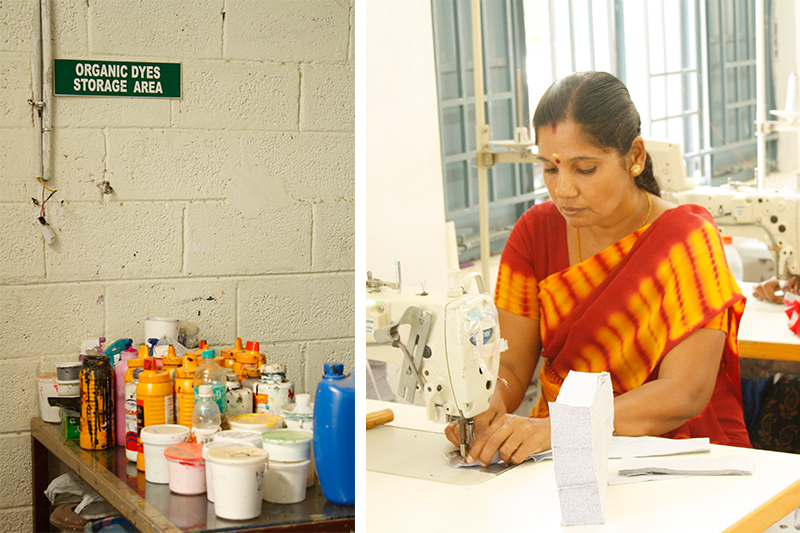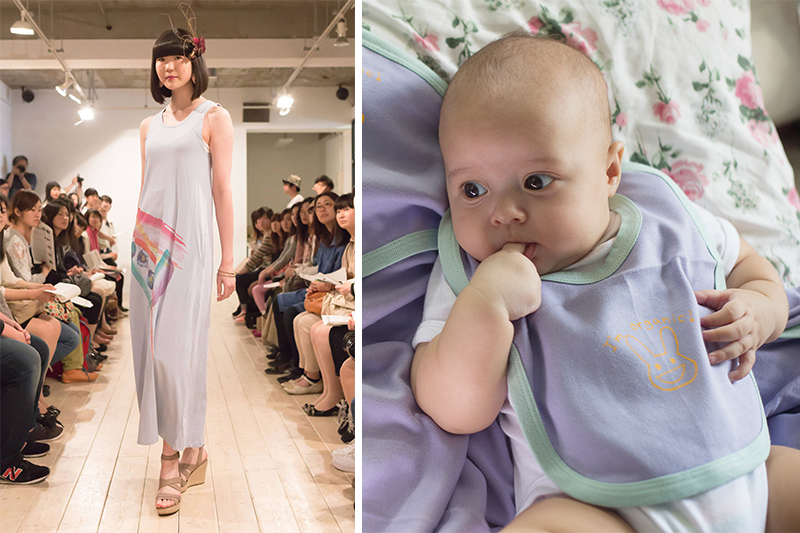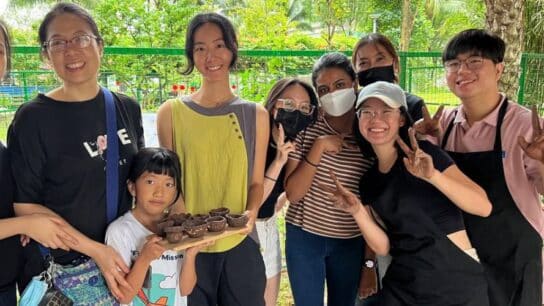Dragos Necula and Yumiko Uno, co-founders of Singapore’s first eco-fashion brand Etrican, break down the true cost of fast fashion and talk through the realities of setting up a sustainable clothing label.
When graduates Dragos Necula and Yumiko Uno launched their fashion label back in 2009 they were determined to create a business where their processes were just as important as their product. Dedicated to sustainable sourcing and manufacturing, their brand Etrican was one of the first in Singapore to be truly green. They sat down with us to discuss why how you make things is just important as what you sell.

Dragos and Yumiko met at the University of Leeds and united by a shared belief that, “fashion should be done in a better way.” For Dragos, his main driver was an interest in sustainability, “I am not a fashion guy. I have a technical and business background.” For Yumiko, it was her experience in the clothing industry that both convinced and inspired her. “I worked for People Tree in Tokyo. There, I was put in charge of organic cotton factories in India, so I got to know about eco-fashion, organic cotton and its impact on the environment. I like fashion, I like nice clothes, but at the same time, I was also wondering how long I could stay in the industry knowing the irresponsible behaviour and lack of awareness that was going on.”
Hence, in 2009, the duo founded Etrican in Singapore. “At the time, there weren’t any eco-fashion brands in Singapore. We were practically the first one here,” says Yumiko. “It made sense to start the brand here because the major producers of organic cotton are all in this region. Singapore is also very retail intensive,” adds Dragos. What Etrican offers can be summarised into two words: accessible and affordable. Wearable womenswear such as loose-fitting dresses and slouchy tees and shorts are found in easy-going prints and colours. They have also recently introduced a baby range – pricing everything as keenly as they can. “We do this without cutting corners on quality by running an efficient operation and keeping the profit margin low,” explains Dragos. “We do make an effort to make our products affordable across the range. We don’t have any piece of apparel which costs over SGD 100.”

When asked what is special about Etrican, both Dragos and Yumiko stress that it is their level of commitment that sets them apart. “I guess what makes us different is that we are very hardcore. A lot of new brands focus on the feel-good factor, it’s always about the artisans. We don’t talk like that. We are very serious about our sustainability credentials,” stresses Drago. The fact their supply chain has been granted Global Organic Textile Organisation (GOTS) certificate attests to this seriousness. “There are so many sustainability certifications but GOTS is definitely one of the best”, says Yumiko.
Etrican’s founders want their customers to understand that “when they make a purchasing decision, it is not only about self-gratification. They also have responsibilities towards those who produce their clothing,” explains Yumiko. The duo work mostly with organic cotton producers in India. “When I asked them why they switched to growing organic cotton, they said that it was because they see environmental damage in their backyard every day. When we walk down Orchard Road, we see only big fashion brands with nice models wearing beautiful clothes. We seldom think about the environmental damage these brands might have caused. But for the cotton producers, they see the rivers in their backyard filled with red, orange, green coloured water. They see birds, fish and small animals dying gradually. For them, the need to switch to organic cotton farming is immediate.” In addition, Etrican works with a GOTS certified factory in Tirupur, India that ensures “fair pay, adequate working hours and conditions for its workers,” adds Yumiko. “When a clothing item priced at 10 dollars gets discounted to 5 dollars, somebody has to pay for that difference. Maybe you are not paying for it, but somebody at the factory needs to burden that cost.”
The journey has not always been smooth for Etrican, but the tide is beginning to turn. “Ten years ago, it was difficult for us to find proper factories that could compete in terms of quality and costs. Organic cotton supply was also insufficient. There was one year we failed to order any organic cotton because H&M bought the whole lot in preparation for the launch of their Conscious Collection. But now, the logistics of supply has become much better.” And with it, awareness of brands like theirs has grown, too. Still, the duo see it as part of their mission to convert others to their cause. “Singapore is so urbanised, a lot of locals don’t have any connection with the environment, and they still love a bargain. No matter how much effort you put into making pricing affordable, you will still get an Auntie who wants a t-shirt for 5 dollars,” Dragos jokes. With their boundless enthusiasm and determination, if anyone can win her over, it’s probably these two.




